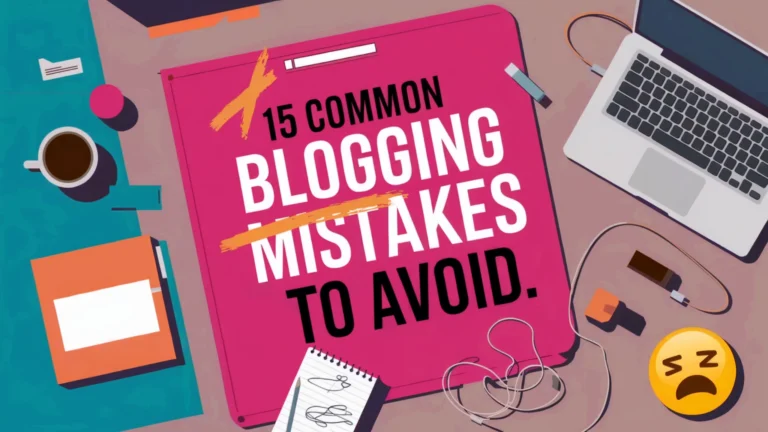Keyword research is the foundation of any effective SEO strategy. It allows you to identify the terms and phrases your target audience is actively searching for, so you can create content that ranks high in search engines and resonates with your ideal customers. In fact, 71% of B2B researchers start their buyer’s journey with a generic search query. This highlights the crucial importance of understanding your audience’s keywords and search intent.
In this ultimate 2024 guide, you’ll learn proven strategies, tools, and techniques to conduct comprehensive keyword research that drives real results. From uncovering valuable long-tail keywords to optimizing your content for maximum visibility, you’ll walk away with a crystal-clear keyword research process to implement right away.
Defining Your Keyword Research Goals
Before diving into keyword research, it’s important to define your specific goals and objectives. Are you looking to drive more organic traffic? Increase conversions on key product pages? Expand into new target markets? Your keyword approach will vary depending on your overarching business priorities.
Take time to clearly articulate what you hope to achieve. This will help you stay focused during research and inform how you apply and optimize the keywords you uncover.
Understanding Search Intent
Grasping the different types of search intent is critical for effective keyword research. There are four main categories:
- Informational: Searchers looking to learn or find information
- Navigational: Searchers looking for a specific website or web page
- Transactional: Searchers ready to make a purchase
- Commercial: Searchers researching products or services to potentially buy
Aligning your target keywords with search intent is key for ensuring your content matches what users are actively looking for. This boosts relevance, engagement, and conversion rates.
Developing Detailed Buyer Personas
In addition to search intent, crafting detailed buyer personas is essential. Dive deep into researching your ideal customers’ demographics, pain points, interests, and the specific language they use when searching.
This buyer persona research will help you identify the most valuable keywords and inform the tone, style, and messaging of your content. By truly understanding your audience, you can create search-optimized material that resonates on a deeper level.
Leveraging Keyword Research Tools
There’s a wide array of free and premium tools to help uncover valuable search terms, including:
- Google Keyword Planner: Provides search volume data and keyword suggestions
- Answer the Public: Reveals questions, prepositions, and comparisons people are searching for
- Ubersuggest: Offers keyword ideas, search volume, and SEO difficulty metrics
- Ahrefs, SEMrush, and Moz: Premium tools with advanced features like competitor analysis and forecasting
Mastering these tools will allow you to gain deeper insights into your target keywords and how they fit into your SEO strategy.
Conducting Comprehensive Keyword Research
With your goals defined, search intent understood, and the right tools in your arsenal, it’s time to start the keyword research process:
- Brainstorm Seed Keywords: Compile a list of broad, industry-relevant keywords.
- Uncover Long-Tail Keywords: Use tools like Google Suggest and LSI Graph.
- Analyze Search Metrics: Evaluate metrics like search volume, competition, and conversion potential.
- Prioritize Keywords: Rank keywords based on your business goals and objectives.
This comprehensive process takes time, but it’s essential for identifying the most valuable search terms to target.
Organizing and Optimizing Your Keyword Strategy
Once you have a list of target keywords, organize them into semantic clusters and map them to specific content pages and topics. This allows you to optimize on-page elements like titles, meta descriptions, and headers for maximum visibility and relevance.
Remember to regularly track keyword performance and iterate your strategy based on the data. Continuously refining your approach is key to staying ahead of the competition.
Maintaining and Expanding Your Keyword Arsenal
Keyword research is an ongoing, dynamic process. To maintain your edge, you’ll need to continuously refresh and expand your keyword arsenal:
- Review Existing Keywords: Analyze trends, seasonality, and content performance to identify opportunities.
- Uncover New Opportunities: Use tactics like competitor analysis and voice search optimization.
- Adapt to Platform-Specific Strategies: Incorporate research for areas like YouTube, Amazon, and social media.
Maintaining a flexible keyword research process ensures your content remains visible and engaging for your audience.
Conclusion
Effective keyword research is the foundation for SEO success in 2024 and beyond. By defining your goals, understanding search intent, developing buyer personas, and leveraging the right tools and strategies, you can uncover the most valuable keywords to power your content and drive business results.
Remember, keyword research is an ongoing process. Stay agile, monitor performance, and continuously expand your keyword arsenal to keep pace with evolving search behaviors and platform-specific best practices. Implement the tactics covered in this guide, and you’ll be well on your way to mastering keyword research for SEO dominance in 2024.




